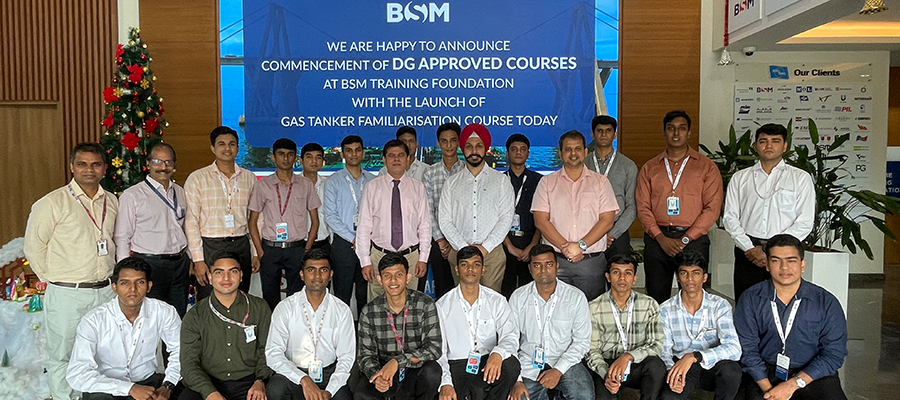The BSM Training Foundation represents a significant step in BSM’s commitment to expanding its training capabilities and providing top-class training to an increasing number of maritime professionals. Training is a key component of the company’s strategy to ensure seafarers are equipped with the skills and knowledge needed to excel in their profession.
The BSM Training Foundation programme comprises officially DG-approved courses for seafarers aimed at enhancing safety, promoting operational excellence and ensuring compliance with the latest maritime regulations. The facility in Kochi offers advanced training rooms, the latest technical equipment, an LNG simulator, a workshop and an outdoor area with realistic ship infrastructure.
The first courses been conducted in the state-of-the-art facility were very well received by participants. A captain who completed ‘The Basic Training for Ships using fuels covered within the IGF Code’ said, “I am truly impressed by the trainers' extensive knowledge and expertise. The great facility and infrastructure made the learning experience effective but also pleasant."











